People with concealed depression or hidden or masked depression put up a happy front and hide the fact they are fighting with inner demons. So, the symptoms of mental illness are not clearly visible in such people. But, there are some common habits of people with concealed depression that you should know to reach out to your loved ones.
But, before discussing concealed depression habits you must know that hidden description is the outcome of cultures that highly supports the idea of hiding feelings of sadness and inadequacy. In such cultures displaying emotional trauma is often frowned upon and considered a sort of cultural taboo.
Depression is one of the most common mental health disorders in children and adolescents but often goes undetected and undiagnosed. On top of that social media is ruling our life to an extent that we don’t think beyond virtual relationships.
Without talking to your friends face-to-face, hugging them tightly, or looking into their eyes, it’s tough to decide what they are going through. Cool texting language with exciting emojis can help a person with depression hide all the pain and suffering. A smiley emoji doesn’t mean the person is really laughing out loud and having a happening life.
Read How To Overcome Negative Thinking And Depression
If we don’t come out of tech-driven connections, we will stop being able to understand each other. And those who are depressed don’t share about their mental state even with their closest companions.
Only if you invest time in understanding people with concealed depression, they will reveal their scars and wounds to you. Else, in the long run, the world will become a dark place to live.
Here are 13 habits of people With concealed depression:
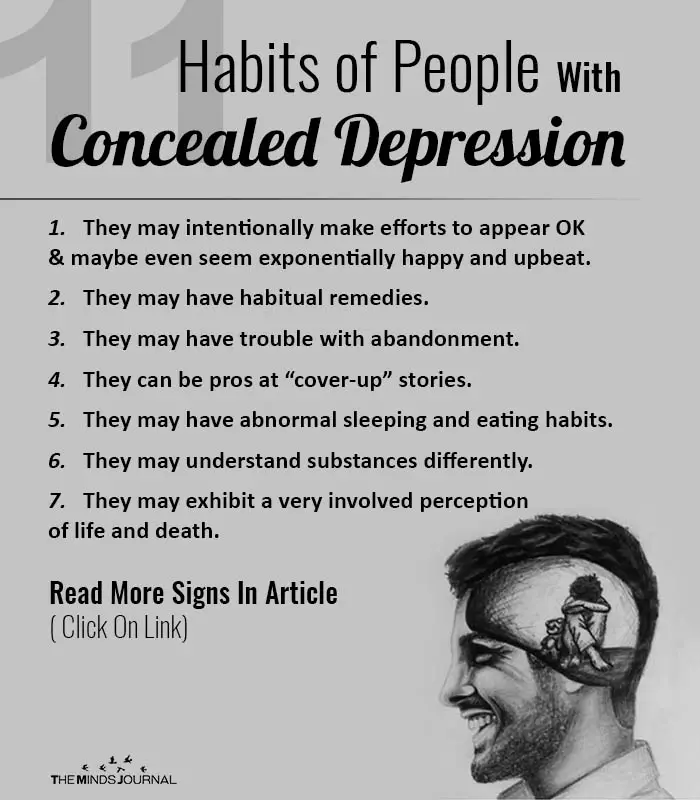
1. They may intentionally make efforts to appear happy.
It is a misconception that all depressed people have a dreary personality. The social construction of depression deviates from the medical notion of illness. Moreover, the stigma associated with depression and other mental illnesses has compelled people living with depression to pretend like everything’s okay and they have a happening life.
Depression is characterized by a range of symptoms and is not just about feeling low or sad. So, those who are depressed tend to alter their facial expressions or mood and may come across as the most “happy” people that you know.
They try hard to flaunt an optimistic attitude even when they are broken and feeling hopeless about life. This is one of the most common habits of people with concealed depression.
Read What Not To Say (And What You Should Say) To A Person With Depression
2. They may have abandonment issues.
Nothing can be more painful than your loved one walking out of your life. But, it hurts a person with depression more than a normal person. They are scarred for life and tend to bottle up emotions. Over time they become more and more secretive out of fear of the recession of those they love.
They blame themselves and feel guilty for things not done and assume that they are terrible enough to be handled by someone they love. They withdraw themselves and make efforts to not be a burden to those closest to them.
Read People with Depression Speak Language Differently New Study Reveals
3. They can be pros at “cover-up” stories.
People with concealed depression come up with wonderful excuses for not attending a party last night, skipping biology classes, cuts on their wrists, not attending calls or replying to messages and so on – they can cook stories for anything.
Depression hampers your work, relationships as well as the normalcy of daily life. Those with concealed depression avoid public attention considering the stereotypes and myths about depression that so-called modern society have.
With hidden depression, expressing your pain to people and giving them a chance to put you down is a big NO. Hiding your state of mind and the things you are going through seems to be a better option.
4. They may have strange sleeping and eating habits.
This is one of the common habits of people with concealed depression. They don’t open up themselves and make muted cries for help. They feel helpless, which has a profound impact on their sleeping and eating habits. They either sleep too much or too less. Either they lose appetite or indulge in binge eating.
Depression creates an extreme lack of control, but sleep and diet are the two easiest options for depressed people to escape and avoid their negative, soul-sucking feelings.
5. They may understand substances differently.
Someone who is dealing with depression withdraws from people and refrains from seeking help, which leaves them with no option but to use self-help methods, which at times can be harmful.
They understand that caffeine and sugar can lift their mood and help to cope with inner struggles. They interpret that alcohol and medication can ease their pain.
Also, they are aware of which medications don’t work and that substance use only gives them temporary relief. But, they have no choice! They have to try harder to feel better, unlike most people.
6. They may have habitual remedies.
People with concealed depression use a range of alternative methods to conquer their inner demons and ease their minds. Besides therapy and medication, they try music, books, long drives, hiking, exercises, and anything that can help them get away with a sinking set of emotions. The habitual remedies may vary from person to person.
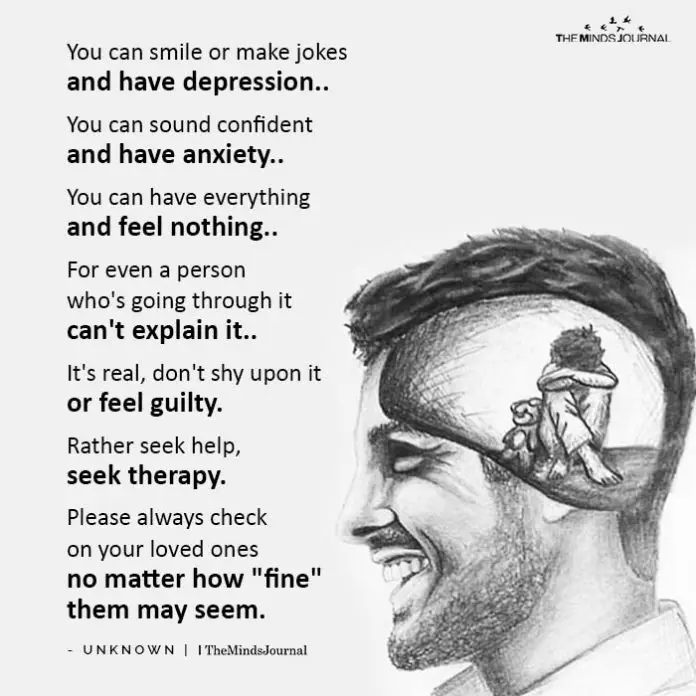
7. They may exhibit a very involved perception of life and death.
Depression doesn’t affect all people equally, because –
- Genetic disposition
- Family relationships
- Work-life, and
- Social life
are the factors that determine how they think and act in moments of despair. So, not every person with depression may have suicidal thoughts.
Their perspective of life and beyond is unique and complex. People with concealed depression are fighting their battle all alone, trying to make peace with unresolved issues and find answers to life’s deepest questions. They keep shifting from one horrible mindset to another and in this process, they develop an involved perception of life and death.
Read 5 Myths About Depression That Should Be Done Away With Immediately
8. They are often very talented and expressive.
There are many famous people who inspired others and left a lasting impression on the world despite having depression – Katy Perry, Michael Phelps, Kristen Bell, and J.K. Rowling to name a few.
This mental illness can plague anyone irrespective of –
- Gender
- Age
- Caste
- Color
- Creed and
- Social status.
Depression can’t stop you from living the life you want and achieving profound greatness. You can express your deepest emotions, and heart-wrenching experiences in various incredible ways…You can always create something beautiful with the darkness that engulfed you. And this is one of the signs of hidden depression.
9. They search for purpose.
Having a purpose in life is crucial because it determines your plans, actions, and decisions. Knowing that you are moving in the right direction will help you stay motivated and grounded. Not being able to find the purpose in life is one of the signs of hidden depression.
One of the habits of people with concealed depression is that they tend to search for purpose in life, without which a feeling of dissatisfaction and negative thoughts may creep in. Having a purpose can shield their mind against feelings of worthlessness, emptiness, and unhappiness. Thus, they keep looking for more ways to feel fulfilled.
Read Frequent Anger and Irritability Could Signal Depression, Research Reveals
10. They seek help too.
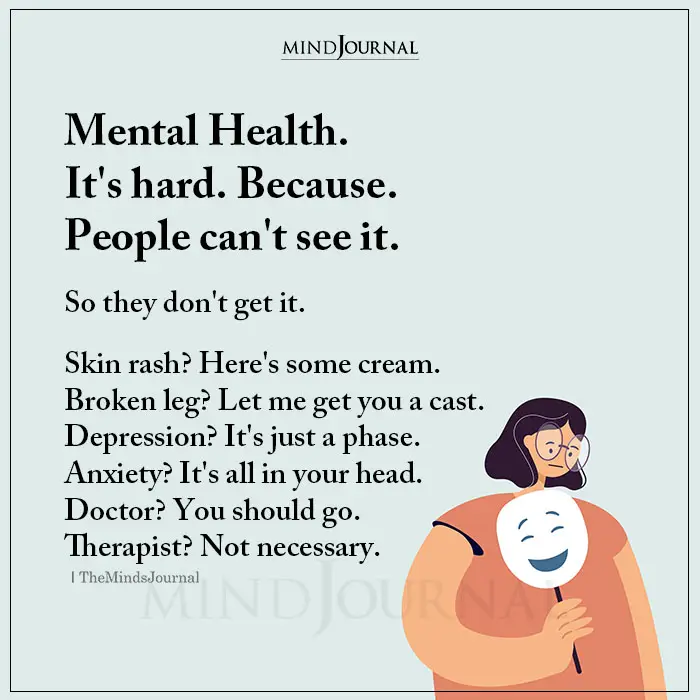
Depression is invisible to most people, so even when some dealing with this mental illness cry for help, they are overlooked. But, the truth is a depressed individual needs help even if most of the time they are tackling internal conflicts independently.
Putting up that fake smile is not always safe and by revealing their true self, they can foster deep connections with their friends and folks, who have different levels of emotions and mindsets.
11. They struggle to quiet their mind
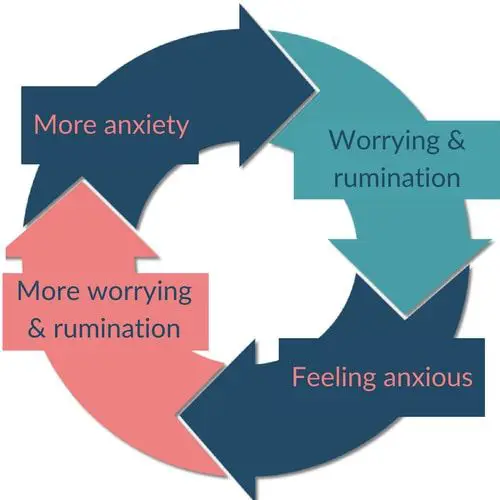
Rumination is one of the dangerous habits of people with concealed depression, which includes obsessive and repeated thoughts related to negative events in life. Constantly, overanalyzing all the good and bad things in life leaves them drained. Also, they always think of worst-case scenarios, which makes them solve problems easily.
12. They absorb the emotions of other people
People with hidden depression are like sponges, they tend to absorb other people’s emotions and energy. They hurt when other people are hurt and suffering, which can add to their emotional pain and stress. Absorbing the emotions of other people is one of the harmful habits of people with concealed depression.
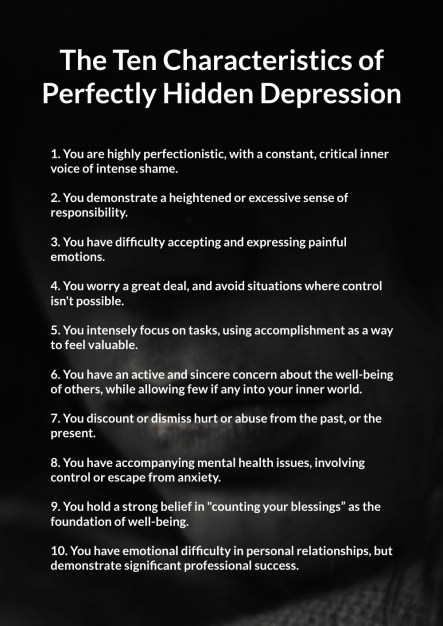
13. They seek love and acceptance, as every person does.
People with masked depression feel vulnerable and tend to protect themselves by staying aloof. They aren’t dishonest, but they don’t want to burden others or bring others down due to their low emotional state.
It is easier to feel alone than express your dark feelings and unpleasant emotions that may or may not be understood. Most people with depression go unnoticed, but they do want to be cared for, loved, and accepted just like everyone else.
The Bottom Line
If you are a person with hidden depression reading this blog and could relate to the above habits, then try to open up and release pent-up emotions even if it is hard to do so. Don’t treat yourself as a burden, those who love you will always stand as pillars for you.
And if you know someone in your circle demonstrating these habits of masked depression then reach out to them. Spread some love and positivity and don’t judge others merely by listening to some dark, unpleasant aspects of their life. Seek help and help others too!
Frequently Asked Questions (FAQs)
What is concealed depression?
Concealed depression is an atypical form of depression that is a little different from the symptoms of major depressive disorder. People with concealed depression do not typically report feeling sad most of the time. Instead, they tend to mask their symptoms by downplaying their distress and flaunting themselves as very happy people. However, they may complain of physical symptoms like headaches, chest pains, abdominal pains. tingling, etc.
What are the signs of concealed depression?
Concealed depression signs are the same as the actual signs of depression but also include pessimism, intense feelings, a tendency to force the feelings of happiness, crying for help but attempting to cover it up, trying to excuse away issues, pondering about life and death. However, these signs are not diagnostic symptoms of anything.
How to deal with concealed depression?
You may seek professional help for medications, psychoeducation, psychotherapy, and alternate interventions like music therapy, yoga, Tai chai, etc. Other than that seeking social support from others and making lifestyle changes like switching jobs or quitting alcohol can help you deal with masked depression.
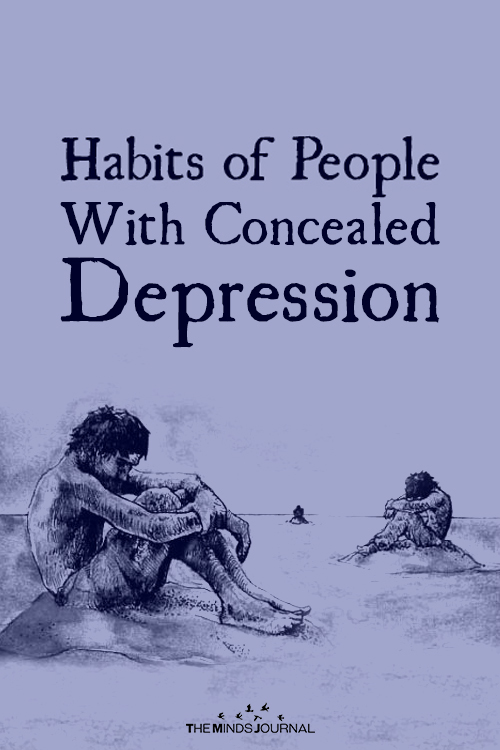
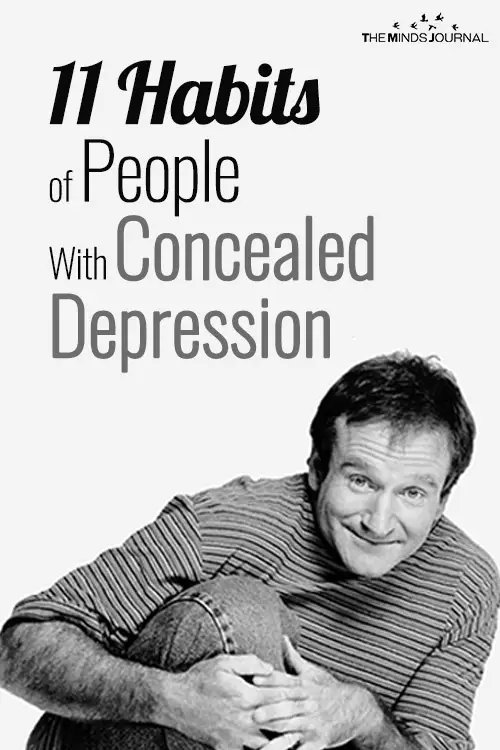
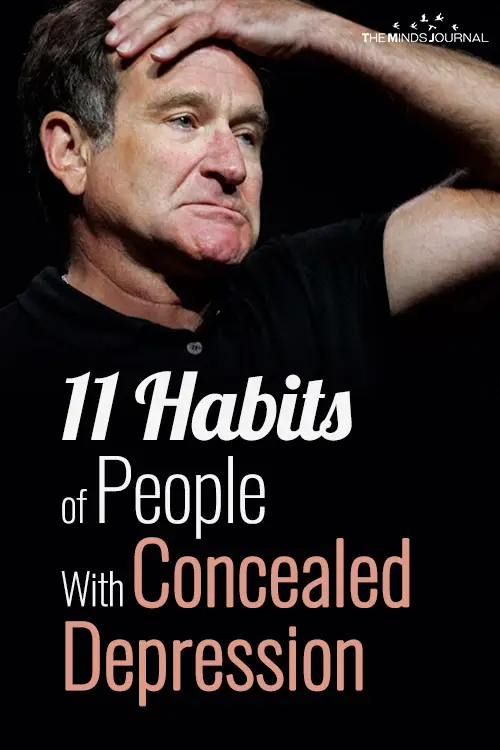
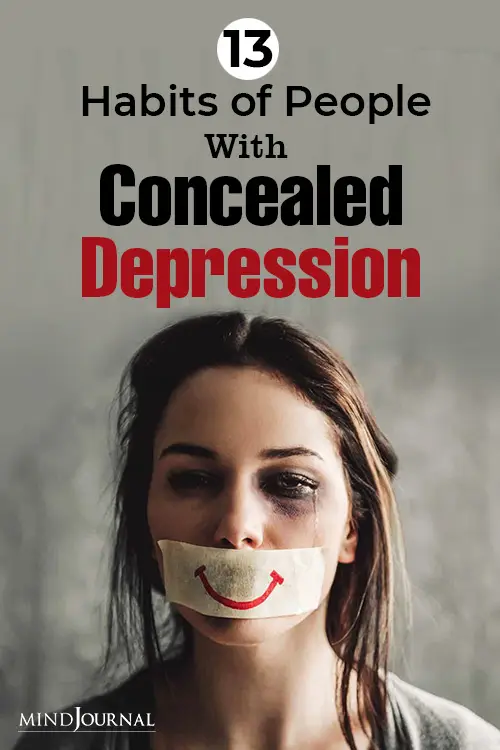
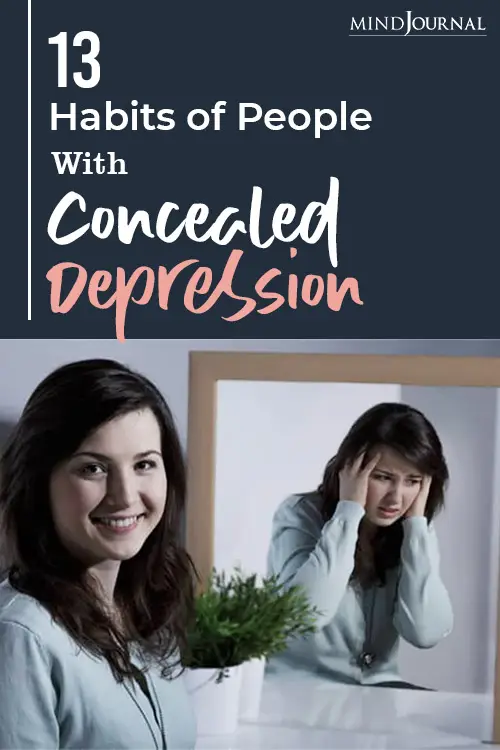
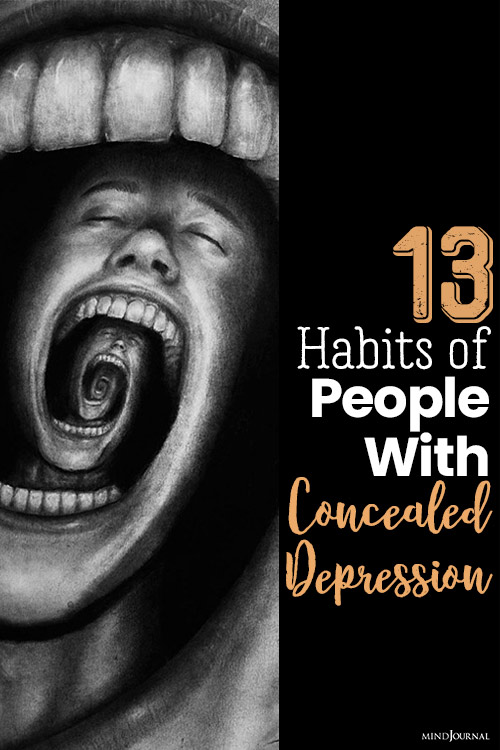
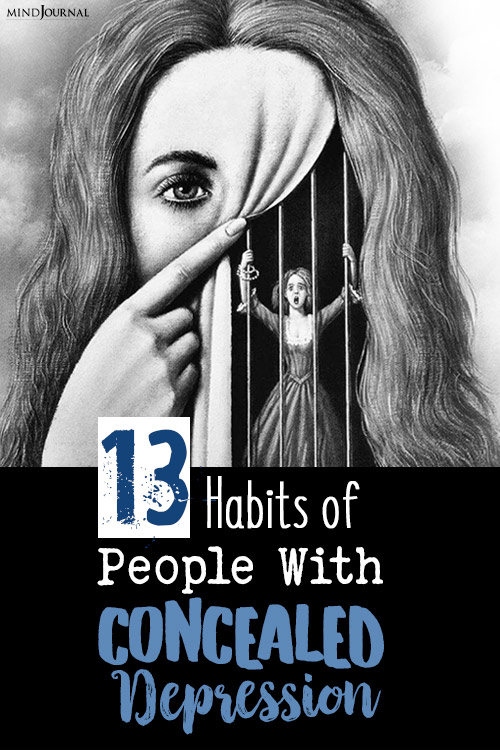
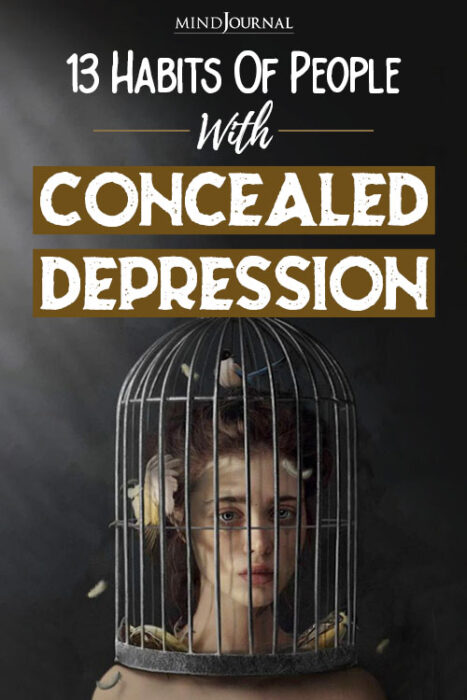
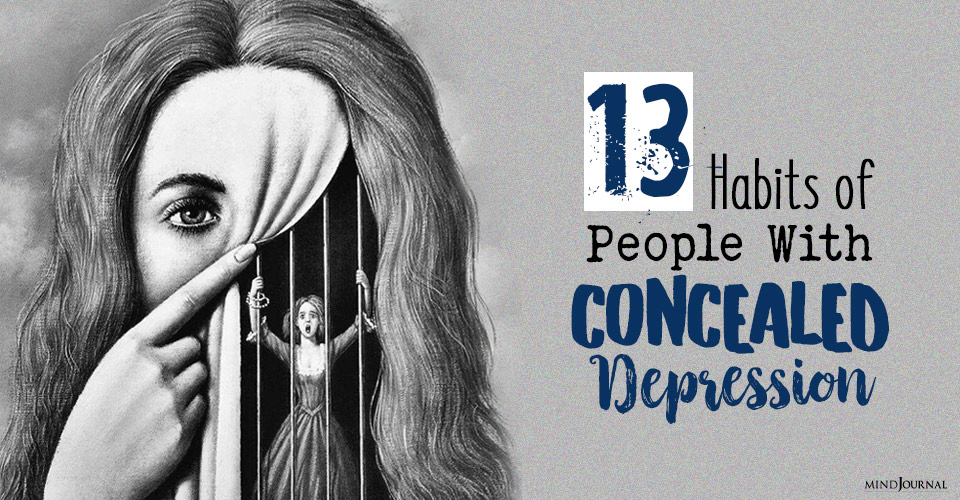
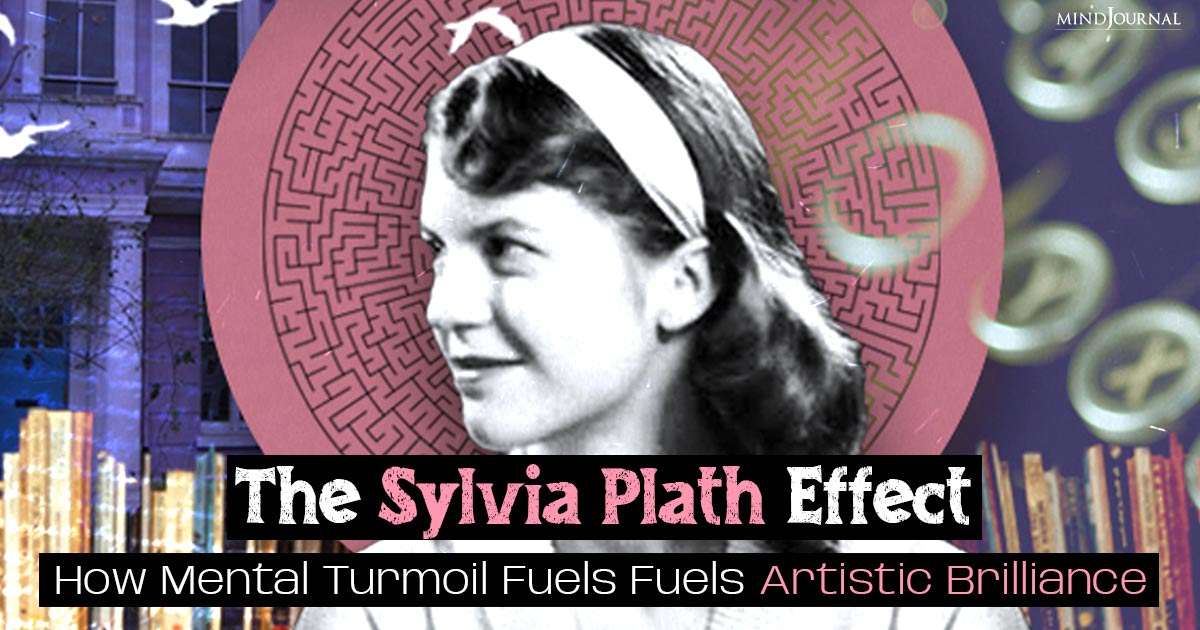
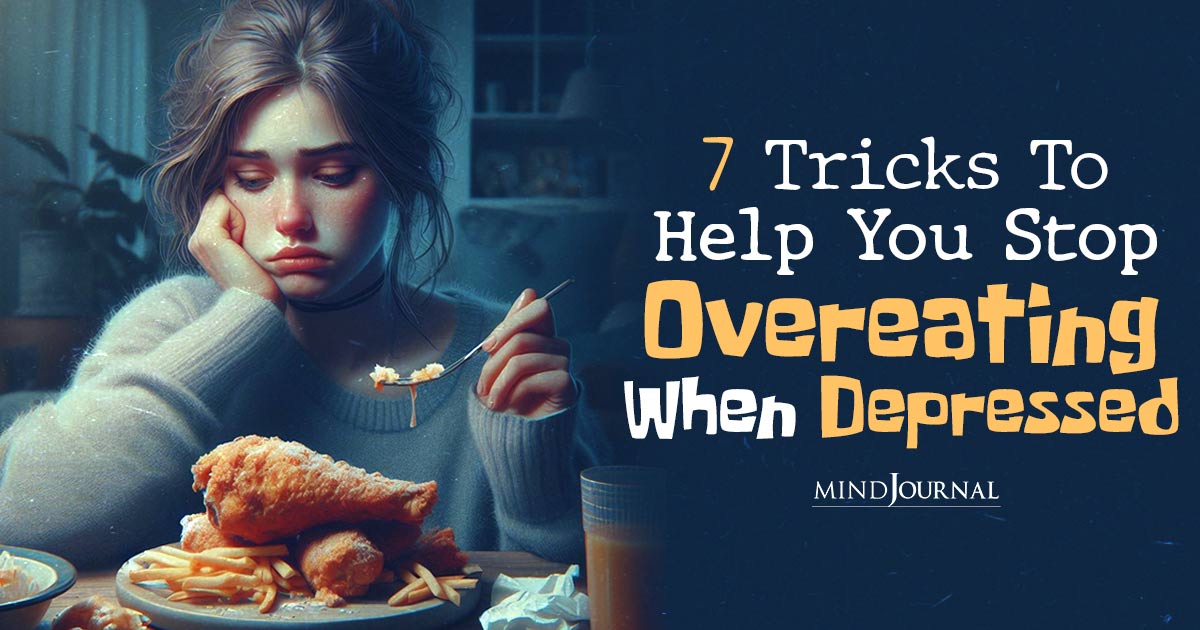
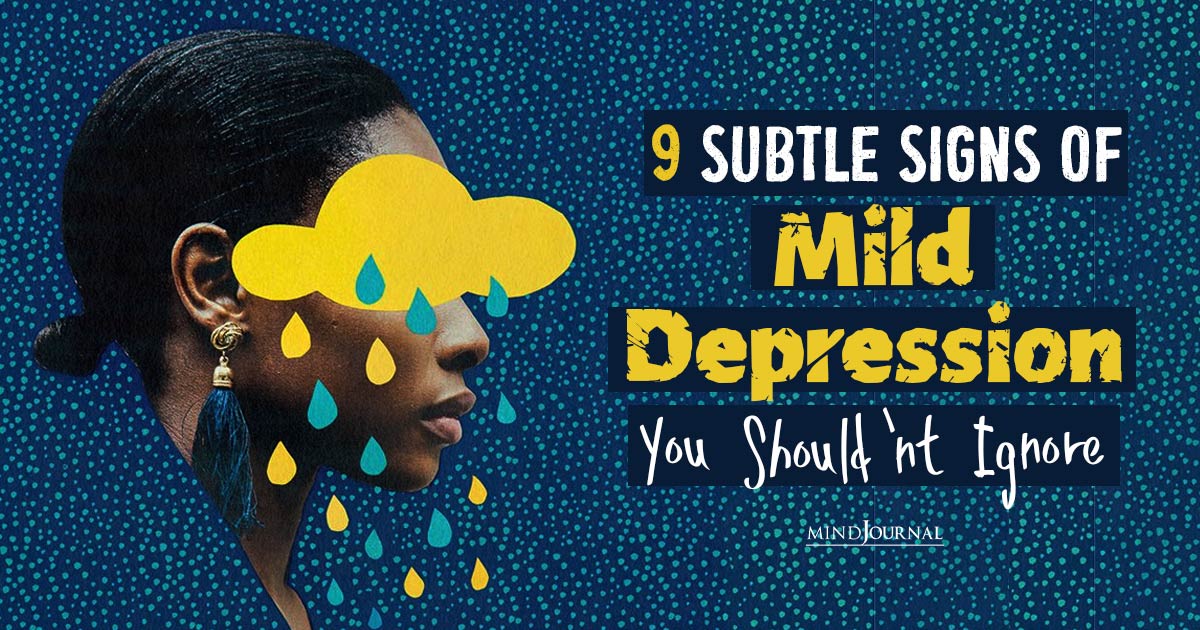
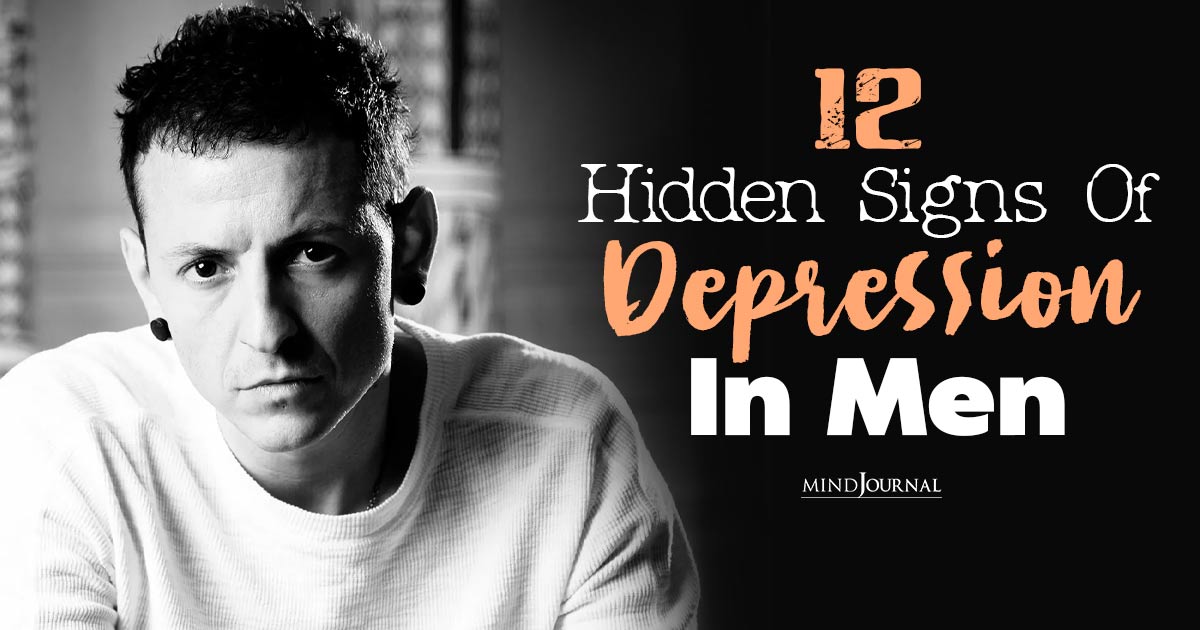
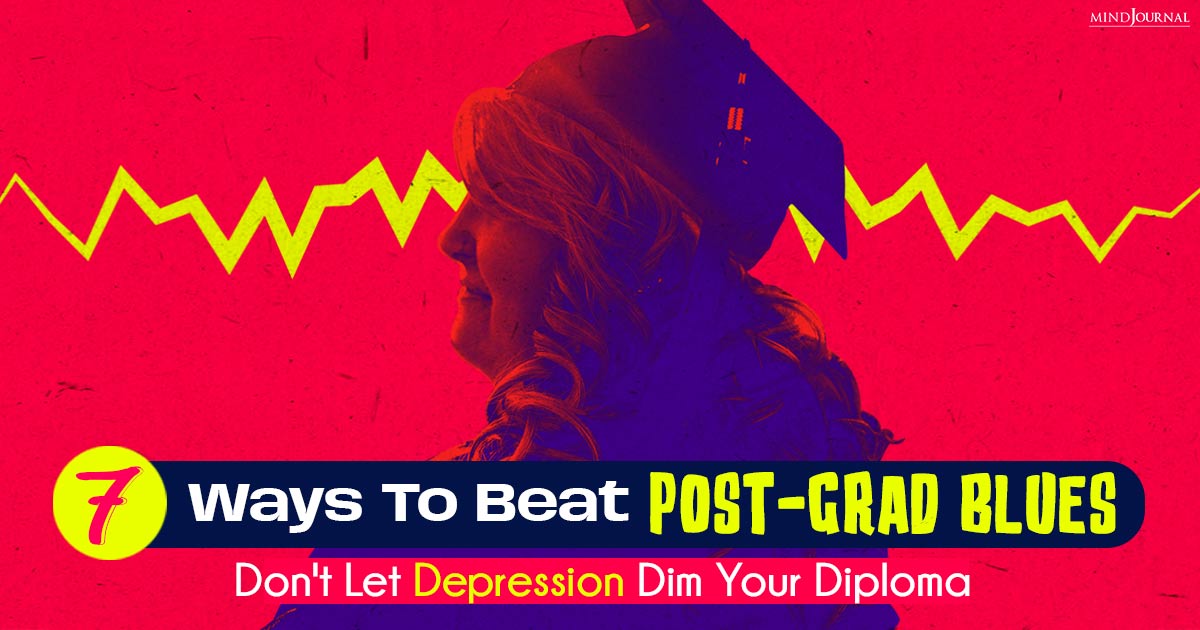
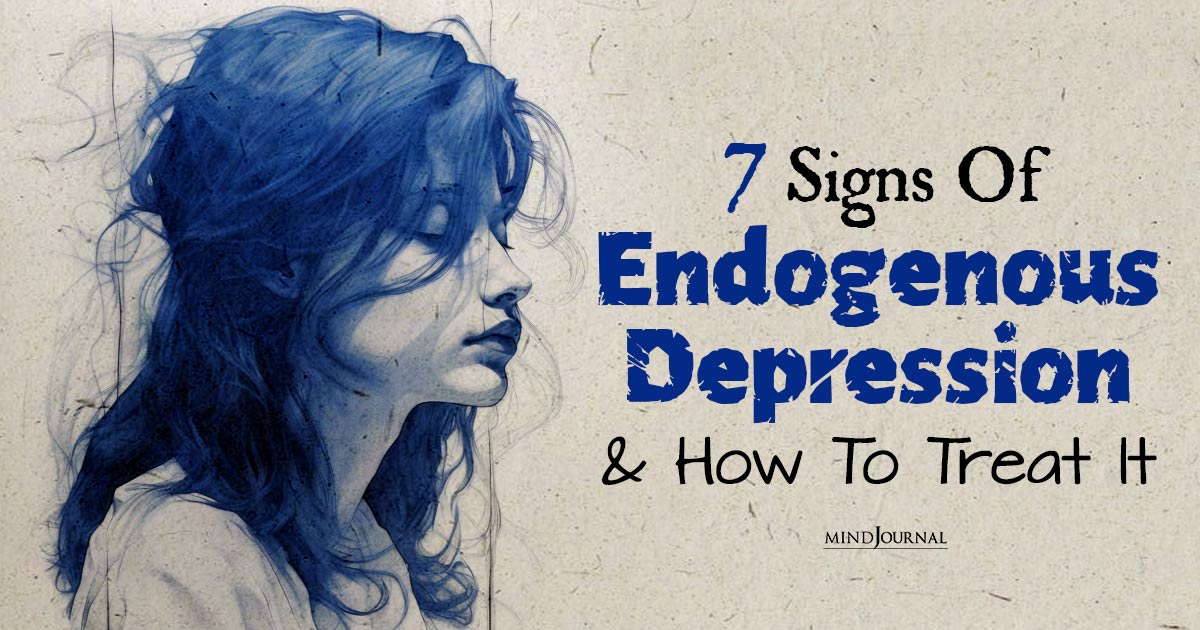
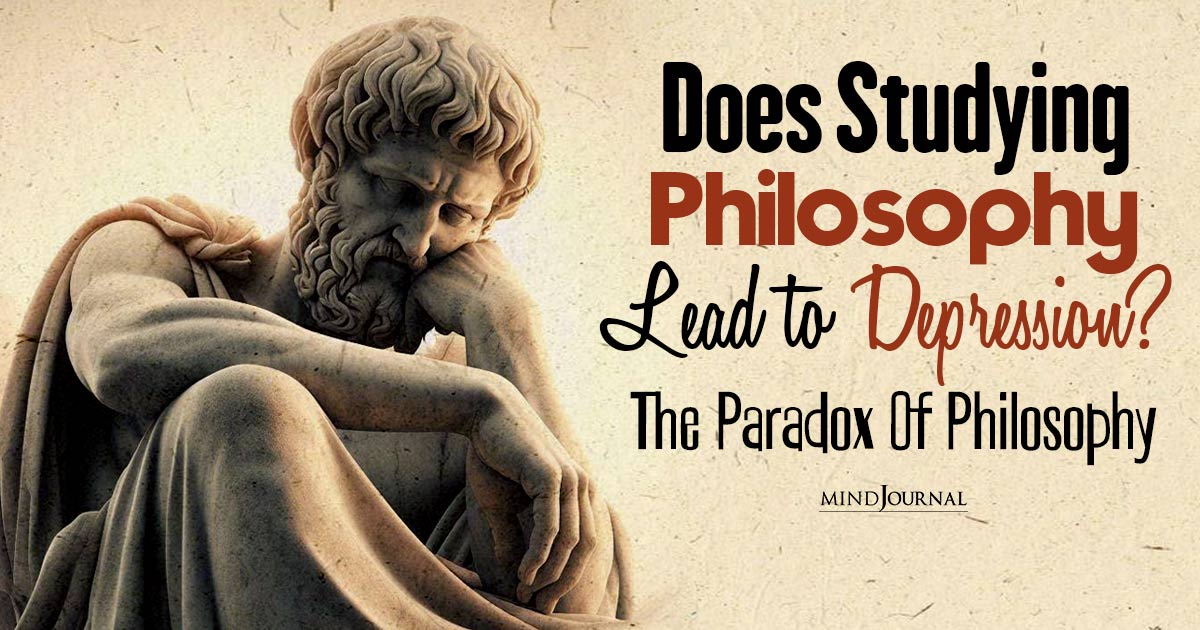
Leave a Reply
You must be logged in to post a comment.